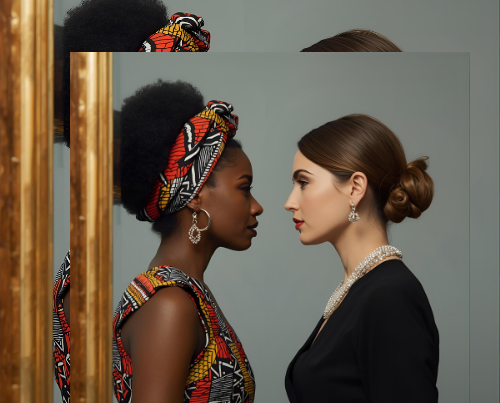In my scrolling and strolling through Instagram, I came across a reel about a white marriage counsellor in session with a Nigerian couple. The comedy skit caught my interest after a few seconds when the man and wife, who were literally arguing in the presence of the counsellor, were asked to calm down. Here is where things got exciting. The counsellor mispronounced their Nigerian marital surname and that made them turn to him in unison, correcting him of the pronunciation of the name. The name itself (Omwukupopo). I have never felt so heard. Almost shouted ‘me too!’ through my screen.They get my pronunciation wrong every time!
My last name ‘Mwandawiro’ has always raised eyebrows every time someone hears it, not the judgmental kind, but the bemused kind, the ‘Wait, what?’ and ‘How do I even say this?’ look (in confusion though). The pronunciation makes it even more challenging. The ‘w’ is a soft, aspirated sound, almost like a gentle whistle — kind of like the sound you make when blowing on hot porridge to cool it down. Cool right? I know. Now, if only people could pronounce it correctly. (Sighs)
And just when I thought my name was a mouthful, I stumbled upon some African names that made mine look like child’s play. Attempting to pronounce them feels like a full-body workout — one wrong move, and you might accidentally swallow your tongue. But at least I only have one long last name. What about those with names longer than a grocery list? My friends from West Africa can confirm that this is a real struggle.
“Meet my daughter, Nwabunike Oluwademilade Kwame-Anastasia Bongani the Third”
Multiple names are not just a cultural quirk; they are a rite of passage, an identity puzzle, and, in some cases, an unintentional tongue twister for schoolteachers and government officials.
The Ancestors have an Explanation; Listen
African names, (some) are deeply meaningful, carried history, wisdom, and expectations. A name was often a poetic expression of circumstances surrounding a child’s birth, a blessing, or sometimes even a warning.
The Real MVPs
A round of applause for people whose names aren’t just multiple but are long enough to deserve their own paragraph. I once saw a video of a witness introducing himself, and even the reporter had to double-check if his ears were working correctly. The name? ‘Ovuvuevuevue Enyetuenwuevue Ugbemugbem Osas’. And no, my keyboard didn’t just malfunction, that’s his actual name. And if you think that’s wild, I say he deserves his flowers for carrying such a heavyweight of a name.
Growing up with a long name(s) in Africa is a full-time endurance test. Imagine being in primary school, nervously waiting for the teacher to call on you. She stares at the register, takes a deep breath, and goes, “Ovu… Ovu — Ah! Just stand up.” By the time she finishes pronouncing it, the lesson is over, and it’s time to go home.
Then there’s the official documentation struggle. While your friend John fills out his form in 10 seconds, you’re still on page two, trying to squeeze your name into a space meant for mere mortals. And don’t even get me started on those whose names are full sentences. You just know their parents had a whole testimony when naming them. “Let’s name this one ‘God is Very Faithful,’ then throw in a 10-syllable surname for good measure!” I mean c’mon are you naming a child or composing the next hit gospel song? If that’s you, just know we’re sending thoughts and prayers. You’re built different.
So next time you meet an African with multiple names; whether short, long, or long enough to require a deep breath, don’t be surprised. Just ask them which one their mother actually uses when they’re in trouble!

